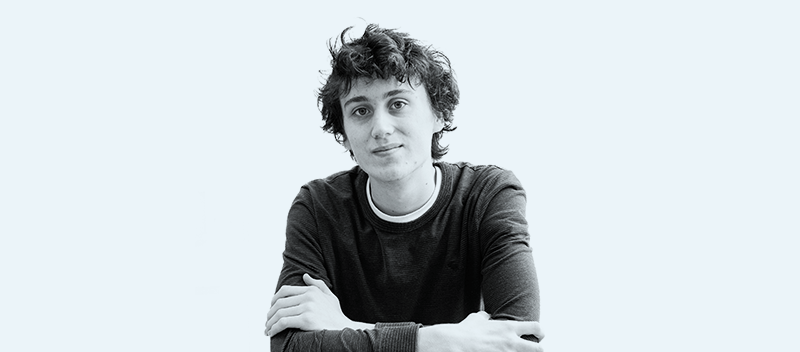‘After my lecture, I cycle onto the campus. I can’t cross the bridge between Orion and Forum because it’s been occupied by campaigners in tents for a month. I’ve always admired the spirit and patience of campaigners for any cause. The sofas in their marquee ‘living rooms’ look pretty comfortable, but it does take perseverance to camp out like this for weeks on end.
Two weeks ago they tried to occupy Atlas, but that didn’t go well. Their next plan doesn’t sound any more promising either. Will the Executive Board agree to discuss their demands that WUR breaks off its ties with Israel? In a joint statement in the newspaper Trouw, rectors at the Dutch universities used ‘academic freedom’ as an argument for maintaining those ties. I ask myself what ‘academic freedom’ really is.
The campaigns in Wageningen seem smaller than those in other cities. The tent residents are mild and there aren’t any hardened troublemakers (luckily). A teacher launched a petition that has been signed about 400 times –not an overwhelming number given the total number of WUR employees. During a previous lecture, a protest march passed by, with a lot of noise, causing all my students to rush to the window. They wanted to see what was happening, but were not terribly interested in the matter.
As I cycle along, I hear a noise. Even more protesters? It turns out to be the sound of the Wageningen student brass band ‘De Ontzetting’, which is giving a concert in the circle between Helix and Aurora, with spectators gathered around it. The orchestra has hung up banners with its logo, which consists of its name and a picture of a detonated bomb.
Summing it up: on one side of Forum there’s a handful of demonstrators busy with an occupation – a peaceful if occasionally noisy protest against a horrific armed conflict. On the other side of Forum, a brass band (whose name translates as dismay) is playing pleasant music for a large audience, and with a bomb in their logo. And I cycle between the two. Maybe I’m typical of the average Wageninger. We prefer not to be outspoken, don’t take up a position, and are quite happy to take a different route if we can’t cycle over the bridge. Is this academic freedom, then?
Sjoukje Osinga (56) is an assistant professor at Information Technology. She sings with the altos in the Wageningen chamber choir Musica Vocale, has three student sons and enjoys bird-watching with her husband in the Binnenveldse Hooilanden.





I’m struggling to understand the point of this opinion piece. Nonetheless, the author has a misconception of what a petition is. For example, for an issue to be placed on the agenda of the House of Representatives as a ‘citizens initiative’, 40,000 signatures are required – meaning the support of 0.3% of the voting population is required. In this case 6% of WUR employees have signed the open letter, yet the Board or the Works Council refuses to take the issue seriously. I doubt the Board has ever been presented with a petition with this many staff signatures. It is concerning how quickly the values of democratic deliberation are dismissed on this campus.